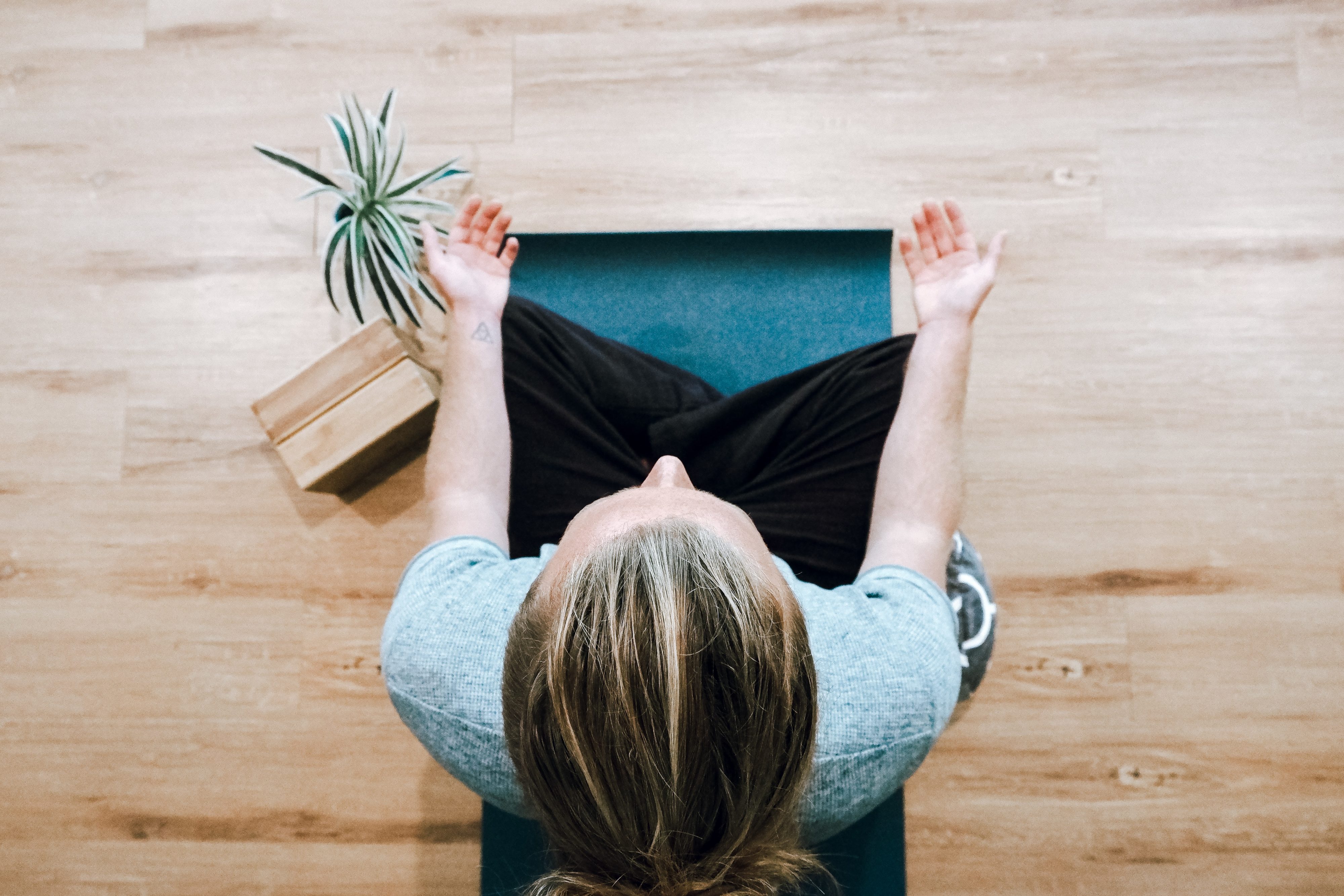
Eighteen months into the pandemic, my neck seized up so badly that I couldn’t make it through more than two hours of work at the Conference & Retreat Center without lying down, flat on back, on my office floor. Multiple trips to doctors, two MRIs, and a CT-Scan revealed minor herniation of two discs in my neck, enough to trigger some pain but not enough to explain it all. One ER doctor told me that I presented like a skier who had wrenched her back and neck while flying through the air. I looked at him incredulously. I had never been on skies. For six months, I took more pain meds than ever; went to weekly traction and physical therapy; and waited (often impatiently) for healing.
Perhaps it was from over a year of working at home, hunched over my computer at my dining room table. Have you heard about COVID neck or Pandemic Posture? It’s a real thing. It was as if the stress and strain of living and leading through a pandemic lodged itself in my neck—and apparently in the necks of many others, too. While I improved, I continued to experience daily discomfort. Then, on a mini-retreat, I practiced a mindfulness meditation called RAIN as developed and presented by Tara Brach, psychotherapist, meditation teacher, and author of Radical Compassion. This meditation encouraged me to listen to my body’s aches with less frustration. By the end of one session, my muscles relaxed, my worry dissipated, and stillness returned to my heart and mind. Along with that came insight about my choices as a parent and a leader.
Whether you are experiencing perplexing chronic pain, stress and burnout, or grief and loss, you can practice the RAIN meditation to foster greater peace, understanding, and self-compassion. In so doing, you begin to retreat where you are.
To begin, set aside time and space so that you can listen to yourself free from external distractions. Go through each of these steps (R-A-I-N) with as much spaciousness as you need. And then return to the meditation again and again. (In other words, one time won’t alleviate all your distress once-for-all. Nothing does.)
R: Recognize your thoughts, feelings, physical sensations, and needs in the present moment. What is the quality of your experience? (For me, it was tightness, numbness, and pain in my neck and frustration with the length of time I’d been in pain. I needed ease, movement, and wellbeing.)
A: Allow your experience to be what is. Do not resist your circumstances or try to change your thoughts, feelings, and needs. Notice what is true for you without judging your experience or yourself. Simply be. (At this point in the meditation, I stopped resisting the pain and tensing up in response to it. I realized viscerally that my irritation only served to increase the physical discomfort.)
I: Investigate your experience with curiosity, openness, and compassion. Tara Brach encourages us to reflect on questions such as, What is the worst part of this? What is the most painful belief I am holding about this experience? What feelings are strongest in my body? When I assume the facial expression and body posture that best reflect these feelings and emotions, what do I notice? Have I experienced this at other times in my life? What do I most need?
This step helped me to identify the connection between my emotional posture and my physical posture. My neck got worse (tighter, stiffer, number) whenever COVID surges negatively impacted my daughter’s schooling and the Retreat Center’s ministry. I needed peace and wisdom as I sought to carry out my two vocations—as a mother and a pastoral leader—in extremely challenging times.
N: Nurture yourself; treat yourself with kindness. Consider how you might befriend yourself. What comes to mind when you hold yourself compassionately? What shifts do you experience in your feelings? Do any actions spring to mind that you’d like to take? Note that this is not so much analysis as it is a process of awakening through deep listening.
With one hand on my anterior neck and another on my chest, I rested and remembered that what I needed even more than peace and wisdom was trust in the power of life, in the presence and goodness of God to carry the Conference & Retreat Center (and all its staff) through another round of pandemic-induced loss of business and to instill resilience in my daughter who had experienced so many changes in her short life. I felt inspired to pause and notice, again, the resilience of in both of them, and of course, in my own life as well.
Overall, the RAIN meditation cultivates self-compassion as well as wisdom and self-understanding. Perhaps it sounds a bit foreign; if so, I encourage you to begin with some basic mindfulness practices, like mindful breathing and mindful pausing, which also help renew our connections to goodness, truth, and beauty around us and inside us.